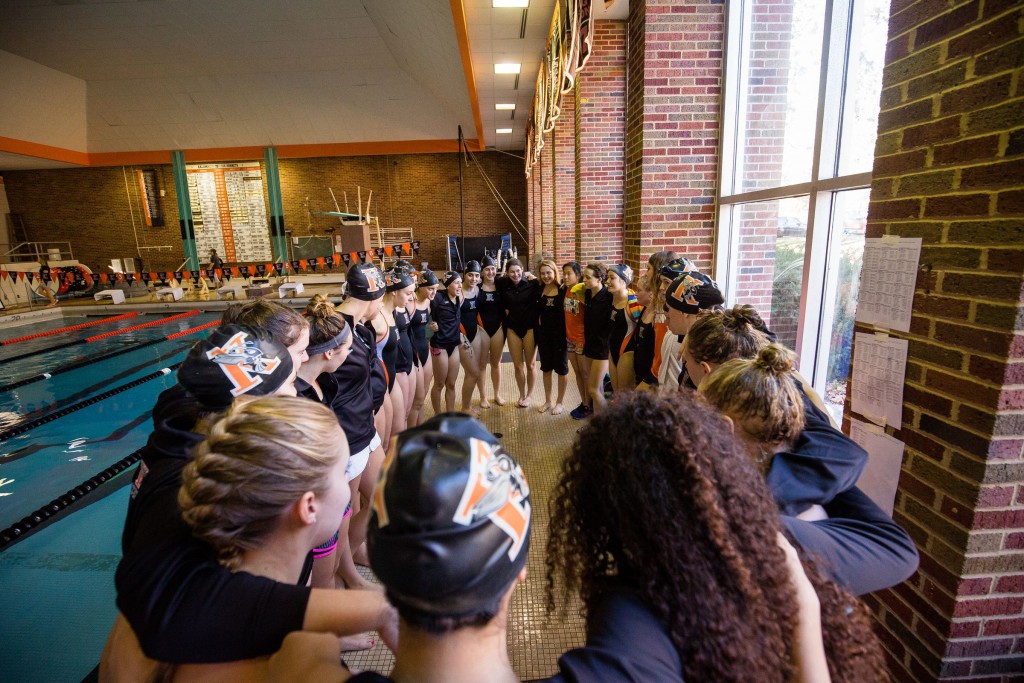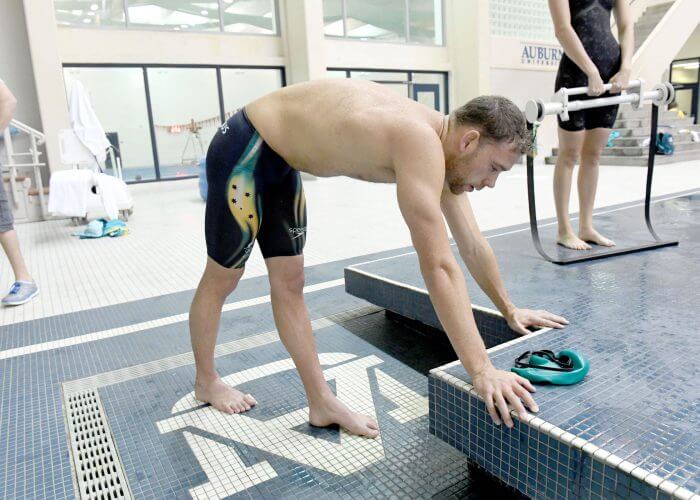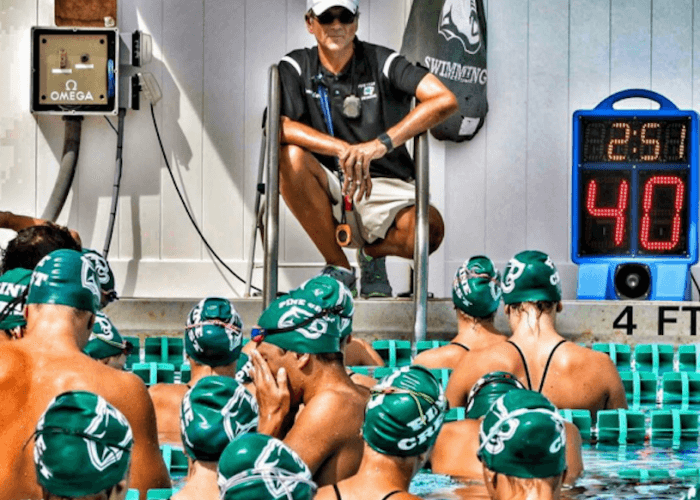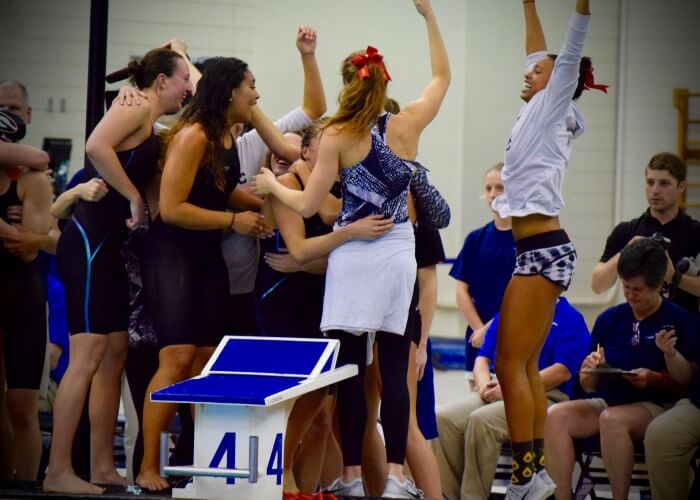8 Things You’ll Learn In Your First College Swim Season

8 Things You’ll Learn In Your First College Swim Season
By Cassidy Lavigne
Freshman year is full of new learning experiences and memories for everyone. As a collegiate athlete, your college experience will already be vastly different than your peers outside of athletics.
The transition from high school to college can be a weird, yet exciting period of change for all incoming students, especially athletes. For student-athletes, this period of change is experienced differently, because not only are you training in a different environment and living away from home, you’re with a different team, coaches, and coaching style.
While this may seem overwhelming at first, like any test set or bad meet, it will pass, and you’ll learn a few things.
Here are 8 things you’ll learn your first collegiate season:
1. Time Management
Before now, swim practice was after school or right before it, and swim meets were over the weekend. You didn’t have to fit classes into your schedule because swim practice worked around it. Now, it’s the opposite. You’ll learn that some classes don’t fit in with practice times and you will need to come to terms with that and find what schedule works.
You’ll learn how to balance adequate sleep between classes, homework, and practice, or how to work around missing classes for swim meets. You’ll learn how to do homework and study on the bus, plane, or in a hotel room between sessions.
2. Communication
Besides communicating with your coaches, you’ll learn how to talk to the entire support system within your athletics department. You’ll learn how to explain to your athletic trainer where your shoulder hurts, how to push your teammates to be better, and how to have a conversation with your professor.
All these scenarios that collegiate swimming will put you in help build your communication abilities, a valuable life skill that is used far beyond the pool deck.
3. Listening to Your Body

Photo Courtesy: Delly Carr / Swimming Australia Ltd.
You may have never swam this much before. You may be feeling a combination of soreness and achy muscles when adjusting to the new training style. Are you hurt or are you sore? Some sets hurt more than others, and previous injuries sometimes affect different joints and muscles. Either way, you’ll learn the difference between the two, and how to listen to what your body is telling you.
4. Working with Others
Swimming has mostly individual races, but overall, it is a team sport. While you will become incredibly close with your teammates and make friends for life, you won’t be best friends with everyone (and that’s okay!) Nonetheless, you’ll learn how to work as a cohesive unit in practice, at meets, on relays, and as a cheering squad.
5. Discipline
Collegiate athletics isn’t easy. Training for hours at a time when you’re already sore and tired to begin with isn’t easy. All of those hours of training, waking up when you don’t want to, and pushing through hard sets, require a deeper strength that gets you out of bed in the morning to keep you on track with your training.
Building up this routine takes discipline and swimmers don’t receive instant gratification with their training. It takes hard work and time to see results. That means making sacrifices. Some nights you’ll miss out on parties because you know you have a meet or practice the next day. You’ll learn to be okay with that, because you’re driven towards your team and personal goals.
6. Trust

Photo Courtesy: Pine Crest Swimming Instagram (@pinecrestswim)
Working with a new coach with a different training style than what you’ve experienced can be scary. At times you’ll question your training and how your coach is training you. While it may be difficult at first, trust your coaches and trust the training process.
7. How to swim fast
You’re no longer in age-group or high school swimming, and dropping time isn’t going to come as easy as it used to. Don’t be discouraged when you’re not shaving off seconds every other week. You’ll learn how your body trains and races, and moreover, how to correct your stroke and improve.
8. That you can do this

Photo Courtesy: Annie Grevers
You may have questioned your decision to swim throughout your season–when the times didn’t drop, when that tweaked shoulder acted up again, and when you doubted yourself–but you did it, and all the hard work paid off and the countless hours of training really are worth it.
All commentaries are the opinion of the author and do not necessarily reflect the views of Swimming World Magazine nor its staff.




Maddy Casswell
Samantha – especially #8
I’m so glad you chose to keep swimming
I loved that, now I am even more excited to start my season! Thank you Jaime Burrough Jess
Leah Eagleton
Isabel Lampre
Next year I’ll go to.
Khoi Cao Nguyen Tuan becoming a collegiate athlete may be a good Idea?